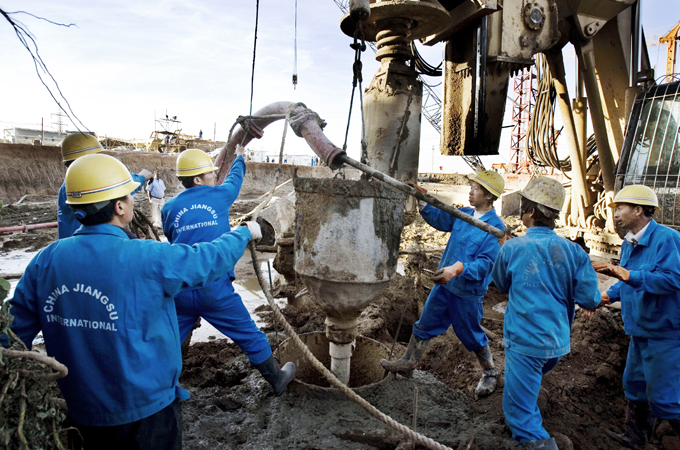A US official has cast aspersions on debt that poor nations owe China saying they are not sustainable.
Ray Washburne, chief executive of Overseas Private Investment Corporation (OPIC) told Reuters Monday that the huge infrastructure projects that these debts are financing are not economically viable.
The infrastructure that Washburne was referring to is part of a strategy dubbed “Belt and Road” initiative that aims to build an infrastructure network connecting China by land and sea to Southeast Asia, Central Asia, the Middle East, Europe and Africa.
However the OPIC official says that this move could a debt trap for many poor nations.
“Just look at any project in these countries and they’re overbuilding the size,” he said. “We try to have countries realize that they’re indebting themselves to the Chinese.”
Mr Washburne warning comes at time when China has already taken control of a major port in Sri Lanka after the country failed to a debt owed to Chinese firms.
New York Times reported in 2017 that Sri Lanka owes more than $8 billion to state-controlled Chinese firms.
Concerns are being raised that the strategic port in the tiny Horn of Africa nation of Djibouti could be next but the government has denied.
Early this year, former US top diplomat Rex Tillerson observed that China’s economic development plan in Africa was fueling dependency and risks putting democratic growth on the continent in jeopardy.
The criticism against China comes amid increased investment by the country especially in Africa in projects ranging from road and rail infrastructure to energy and water sectors.
In Kenya for example, China is helping the country build a modern standard gauge railway project whose first phase is already complete. Construction of the second phase has already started amid opposition by environmentalists that the rail is passing through an animal park.
In Ethiopia, China is involved in the construction of several industrial parks aimed at transforming the country into a garment manufacturing hub.
The Hawassa Industrial Park for instance, has proved successful in just less than a year as it has attracted various world-class textile and apparel companies to the east African country.
The industrial zone has so far welcomed 18 companies that have already started operations inside the park. Six of them are presently exporting their products to the international market.
Early last year, Nigeria’s president, was seeking approval from lawmakers to borrow nearly $6bn from the Export-Import Bank of China for railway projects, as his government soughy to revive a recession-hit economy through spending on big infrastructure projects.
Nigeria is also planning to build a $5.8 billion hydro-power station in the country’s eastern Mambila region with a capacity to generate 3,050 megawatts with China’s support.

